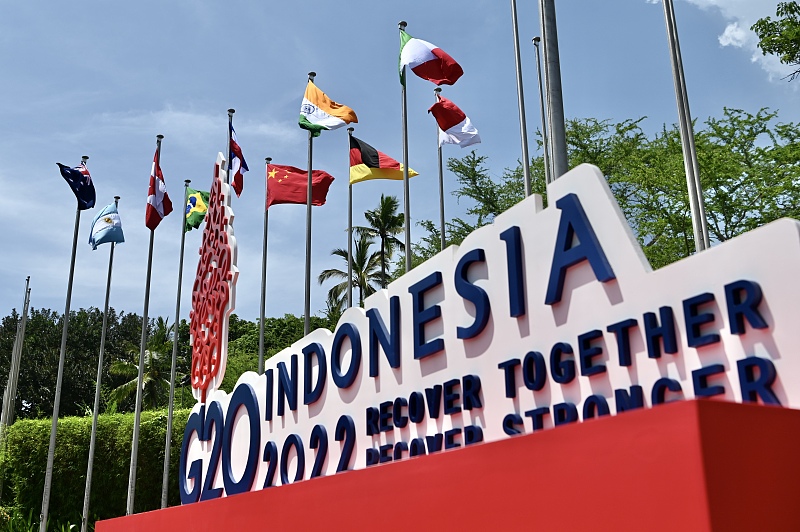Multilateral diplomacy promotes communication and cooperation
- By Tom Fowdy
 0 Comment(s)
0 Comment(s) Print
Print E-mail China.org.cn, November 18, 2022
E-mail China.org.cn, November 18, 2022

The past week has been huge for major economies worldwide, as many multilateral and bilateral meetings have been held among countries while participating in the G20 summit in Bali, Indonesia.
These crucial multilateral gatherings come at a time when multilateralism and diplomacy face a myriad of threats and growing pressure worldwide. The year 2022 has indeed been one of uncertainty, division, and disarray, which has seen several geopolitical fractures and widespread fears of a divided world. But we should understand that the consequences of growing division and ideological confrontation across the world will ultimately be disastrous for all parties involved.
China has always made it clear that it does not want a so-called new Cold War with the United States and has often chosen to remain cautious and restrained. In more than a few areas, China has persisted in its efforts to engage with Washington, as visible through the recent summit. While the U.S., in its view to try and contain China in a zero-sum attempt to try and sustain its own hegemonic position, has resorted to growing levels of economic protectionism, exacerbating geopolitical conflict and tensions. It has attempted to create "blocs" by forcing countries to take sides and creating uncertainty in the global economy. However, Beijing's message has been unequivocal in its insistence that the multilateral order must remain stable, open, cooperative and inclusive to combat global challenges.
China's foreign policy position has always tried to facilitate common development and challenges. It has only sought a fairer and more just version of the current order, one where every country has equal and sovereign rights. In contrast, "Cold War" politics risk a "lose-lose" outcome, causing difficulties in supply chains, plaguing businesses with great uncertainties and diminishing investor confidence. If these geopolitical fractures continue to consolidate, the progress of global integration built since the end of the Cold War can be unraveled.
Against this backdrop, China prefers open and multilateral diplomacy with a range of countries in the view to sustaining cooperation that will benefit all parties.
Deeper economic integration is the key to greater global prosperity and stability. Thus, as the U.S. decided it did not like the trading order it created, China positioned itself as a champion of multilateral trade and deepening markets with its neighbors. As Europe is beset with difficulties, Asia must sustain itself as the fastest-growing, most stable and increasingly prosperous region in the world. This is why China sees its engagement with the ASEAN bloc as important.
China has long committed to building "a community with a shared future for mankind," showing that its own development and growth are not a zero-sum game or competition whereby "one party wins and the other loses" but that in a modern globalized world, growth is intertwined and relatively complimentary. The success of China's own domestic markets and economy is inseparable from that of the ASEAN states. This practical reality is far removed from the views of some countries, which believe that one party's gain must always come at the expense of another. But that is not what China is trying to achieve, be it regarding ASEAN, Europe, or even the U.S.
Going forward, the world will continue to face grave uncertainties and challenges. The G20 summit in Bali is not likely to be a great game-changer. However, it is a significant diplomatic breakthrough for China to pursue its multilateral vision and engage with several countries. Governments must work together and push for the bigger picture if real progress is to be made.
Tom Fowdy is a British political and international relations analyst and a graduate of Durham and Oxford universities. For more information please visit:
http://www.china.org.cn/opinion/TomFowdy.htm
Opinion articles reflect the views of their authors, not necessarily those of China.org.cn.
If you would like to contribute, please contact us at opinion@china.org.cn.






Go to Forum >>0 Comment(s)